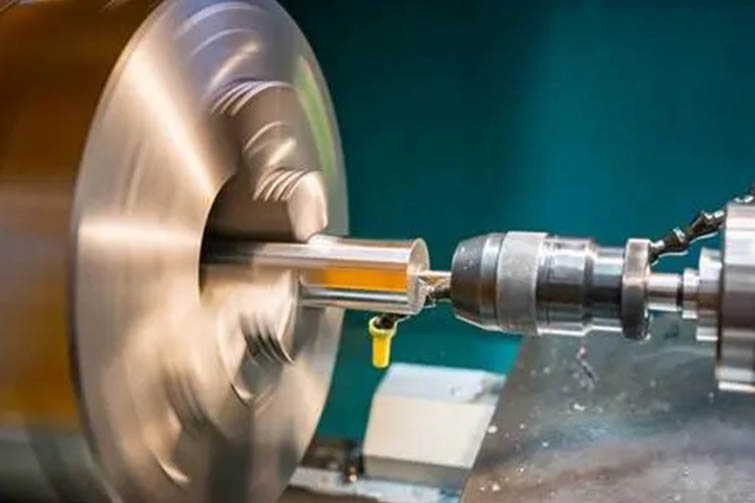

China's Leadership in Global Zero-Defect Manufacturing
China has rapidly ascended to the forefront of global manufacturing, becoming synonymous with efficiency, scale, and innovation. One of the most remarkable aspects of this rise is the country’s commitment to zero-defect manufacturing—a stringent quality control philosophy that aims for flawless production. This article explores how China has positioned itself as a leader in zero-defect manufacturing and the implications for global industries.
The Concept of Zero-Defect Manufacturing
Zero-defect manufacturing is a quality management approach that emphasizes the prevention of defects rather than the detection and correction of defects after they occur. The goal is to achieve a production process where the occurrence of defects is minimized or entirely eliminated. This concept is grounded in the principles of continuous improvement and total quality management (TQM).
China's Commitment to Quality
1.Advanced Manufacturing Technologies
China’s leadership in zero-defect manufacturing is driven by its adoption of advanced manufacturing technologies. The integration of Industry 4.0 technologies, such as automation, artificial intelligence (AI), and the Internet of Things (IoT), has revolutionized production processes. These technologies enable real-time monitoring, predictive maintenance, and automated quality control, significantly reducing the likelihood of defects.
2.Skilled Workforce
China has invested heavily in developing a skilled workforce capable of operating and maintaining sophisticated manufacturing systems. Education and training programs focus on the latest manufacturing techniques and quality management principles, ensuring that workers are well-equipped to uphold zero-defect standards.
3.Strict Quality Control Measures
Chinese manufacturers implement rigorous quality control measures at every stage of the production process. This includes meticulous inspection of raw materials, precision in manufacturing processes, and thorough testing of finished products. The emphasis on preventative measures ensures that potential defects are identified and addressed before they can affect the final product.
The Role of Government and Policy
1.Supportive Industrial Policies
The Chinese government plays a crucial role in promoting zero-defect manufacturing through supportive industrial policies. Initiatives such as "Made in China 2025" aim to transform China into a global manufacturing leader by emphasizing quality and innovation. These policies provide incentives for companies to invest in advanced technologies and adopt best practices in quality management.
2.Standardization and Certification
China has also established comprehensive standards and certification systems to ensure high quality across its manufacturing sector. Compliance with international standards, such as ISO 9001, is widespread, and many Chinese manufacturers have obtained certifications that attest to their commitment to zero-defect principles. This standardization fosters consistency and reliability in production processes.
Impact on Global Industries
Electronics and Consumer Goods
China's zero-defect manufacturing prowess is particularly evident in the electronics and consumer goods industries. Companies like Huawei, Xiaomi, and Haier have gained global recognition for their high-quality products. The focus on zero-defect manufacturing has enabled these companies to produce reliable and innovative products that compete successfully in international markets.
Automotive Industry
The automotive industry is another sector where China’s zero-defect manufacturing has made significant strides. Chinese automotive manufacturers are increasingly recognized for their quality and reliability, thanks in part to stringent quality control processes. This has allowed Chinese automakers to expand their presence in global markets and establish partnerships with leading international brands.
Aerospace and Defense
In the aerospace and defense sectors, where precision and reliability are paramount, China’s zero-defect manufacturing capabilities are proving critical. Chinese aerospace companies are producing components and systems that meet the highest international standards, contributing to the country’s growing influence in global aerospace markets.
Future Prospects
Continued Innovation
China's leadership in zero-defect manufacturing is poised to continue as the country invests in further innovation. Emerging technologies such as 5G, big data analytics, and machine learning are expected to enhance quality control processes even further, pushing the boundaries of what is possible in zero-defect manufacturing.
Expanding Influence
As Chinese manufacturers continue to demonstrate their capabilities, their influence on global industries will expand. International companies are increasingly looking to China not only as a manufacturing hub but also as a source of best practices in quality management and zero-defect production.
Conclusion
China’s commitment to zero-defect manufacturing has positioned it as a leader in the global manufacturing landscape. Through the adoption of advanced technologies, a skilled workforce, stringent quality control measures, and supportive government policies, China has set a benchmark for quality and reliability. As the country continues to innovate and expand its influence, the principles of zero-defect manufacturing will remain central to its success and impact on global industries.





